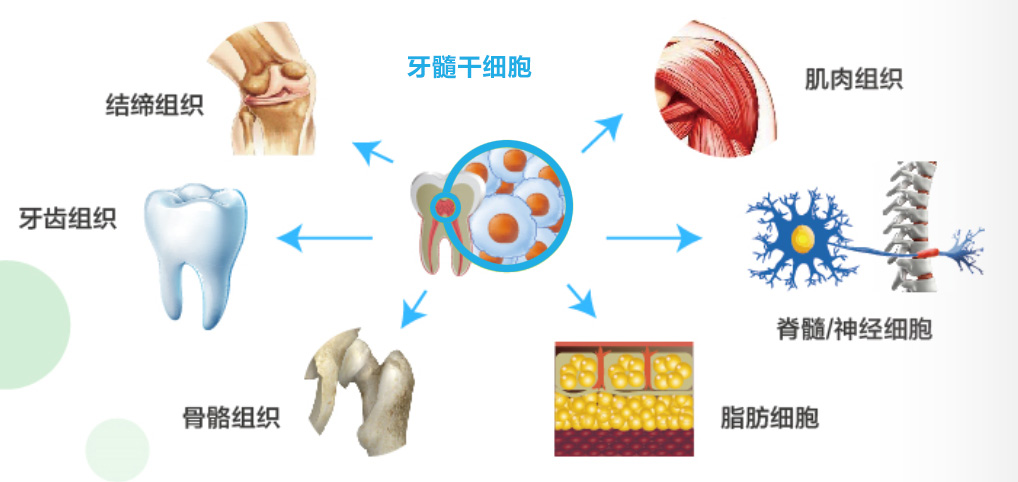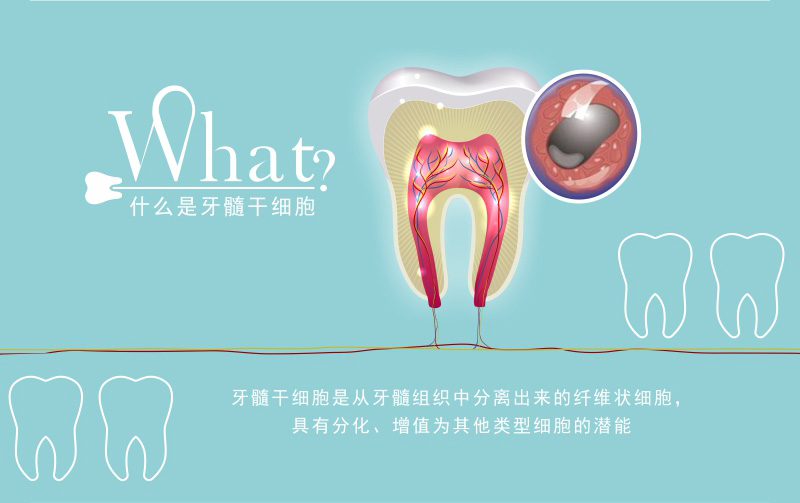What is dental pulp stem cells?
Dental pulp stem cells are mesenchymal stem cells isolated from dental pulp tissue, which have the potential to differentiate and proliferate into other types of cells. Since the discovery of dental pulp stem cells in 2000, dental pulp stem cells have become the focus of research in many countries for more than 10 years. Regenerative medicine with stem cells as its core has been widely recognized by the scientific community as a new hope for the ultimate solution of many refractory diseases, aging diseases, tissue repair and regeneration, as well as the prevention and treatment of tumors.


Population Suitability and Storage Timing of Dental Pulp Stem Cells
Stem cells come from a wide range of sources, including bone marrow, placenta, umbilical cord, umbilical cord blood, deciduous teeth, etc., but the use of stem cells in different tissues is different. At present, the main products on the market are the storage of umbilical cord blood and umbilical cord stem cells. Although there are abundant stem cells, they are limited to the moment of fetal delivery to achieve collection and preservation. Pulp stem cells have more storage opportunities. Healthy deciduous teeth and wisdom teeth are the sources of collection. Twenty deciduous teeth can be used to extract dental pulp stem cells, and every child in the changing period is worth saving. Adults can also store dental pulp stem cells if wisdom teeth are extracted. Small deciduous teeth can be of great use!
The time of deciduous teeth falling off is 6-13 years old. The deciduous teeth gradually fall off and are replaced by permanent teeth. Because of the complex environment of oral bacteria, the earlier the dental pulp stem cells are preserved, the greater the storage opportunities.

Medical value of dental pulp stem cells
• Pulp stem cells act on tissue repair:Because of its excellent regeneration ability, dental pulp stem cells have a good effect in the regeneration of blood vessels between periodontal tissue, liver, neurons, skeletal muscle tissue and other tissues, as well as in the treatment of limb tissue ischemia caused by diabetes mellitus, bone injury caused by femoral head necrosis and skin injury caused by burns.
• Pulp stem cells act on the nervous system:Studies have shown that there are some cells in adult dental follicles that can differentiate effectively and rapidly into neurons, osteoblasts, adipocytes and other types of cells. Studies have shown that pulp stem cells can regenerate and replace lost neurons through differentiation in mice with impaired central nervous system.
• Pulp stem cells act on immune system diseases:Dental pulp stem cells have the same immunoregulatory capacity as bone marrow mesenchymal stem cells. Studies have shown that dental pulp stem cells can be used as immunosuppressive drugs for oral inflammation and other chronic inflammation.
Clinical application of dental pulp stem cells
• Scope of study:Dental regeneration therapy, dental restoration, regenerated tooth tissue, oral and maxillofacial bone repair, bone and cartilage diseases, neurological diseases, immunodeficiency diseases, myocardial angiogenesis and other diseases.
• Application:Chronic periodontitis, cleft lip, gingival disease, interstitial lung disease in children, pulp disease, oral disease, pulp necrosis, gangrene, infection, oral abnormalities, periodontal disease, oral and jaw disease, dental disease, congenital dysplasia.
Six Advantages of Pulp Stem Cell Storage

Storage process of dental pulp stem cells


